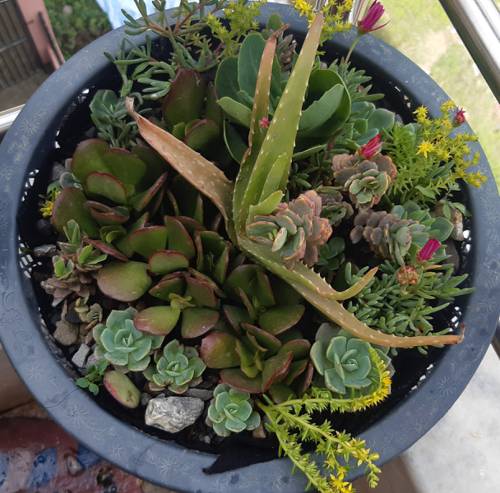
FAQ About Indoor Plant Nitrogen Fixation

What is nitrogen fixation in indoor plants?
Nitrogen fixation is a process where certain plants convert atmospheric nitrogen, which is inert and unavailable to plants, into a form that plants can use, such as ammonia. This process is essential for plant growth and soil health, as nitrogen is a crucial component of amino acids, proteins, and DNA in plants.

Why is nitrogen important for indoor plants?
Nitrogen is a vital nutrient for all plants, including indoor varieties. It is a primary component of chlorophyll, the compound plants use in photosynthesis to convert sunlight into energy. Additionally, nitrogen is necessary for the synthesis of amino acids, the building blocks of proteins, which contribute to the structural and metabolic functions of plants.

Can all indoor plants fix nitrogen?
No, not all indoor plants have the ability to fix nitrogen. Typically, nitrogen fixation is a trait associated with specific plants, mainly legumes like peas and beans. However, some indoor plants can host nitrogen-fixing bacteria, which can enhance the nitrogen content in their soil.

How do certain indoor plants enhance soil nitrogen levels?
Certain indoor plants enhance soil nitrogen levels by hosting symbiotic bacteria known as rhizobia. These bacteria reside in nodules on the plant's roots and convert nitrogen gas from the atmosphere into ammonia, a form of nitrogen that plants can absorb and use. This symbiotic relationship benefits both the plant and the bacteria.

Which indoor plants are known to fix nitrogen?
Some indoor plants capable of assisting in nitrogen fixation include the peace lily (Spathiphyllum), pothos (Epipremnum aureum), and snake plant (Sansevieria trifasciata). These plants may not fix nitrogen themselves but can enhance soil nitrogen through their interaction with nitrogen-fixing bacteria.

How does nitrogen fixation improve soil health?
Nitrogen fixation improves soil health by increasing the availability of usable nitrogen in the soil. This contributes to healthier plant growth and can reduce the need for chemical fertilizers, promoting a more sustainable and environmentally friendly indoor gardening practice.

What role do bacteria play in nitrogen fixation for indoor plants?
Bacteria play a crucial role in the nitrogen fixation process for indoor plants. Symbiotic bacteria such as rhizobia form a relationship with plant roots, where they convert atmospheric nitrogen into ammonia. This ammonia is then utilized by the plant for growth, while the bacteria receive carbohydrates and a hospitable environment from the plant.

How can I encourage nitrogen fixation in my indoor plants?
To encourage nitrogen fixation in your indoor plants, you can inoculate the soil with nitrogen-fixing bacteria or use potting mixes that contain these microorganisms. Additionally, ensuring that your plants are in a healthy environment with adequate light and water will support their ability to host beneficial bacteria.

What are some signs that my indoor plants might be low in nitrogen?
Signs that your indoor plants might be low in nitrogen include yellowing leaves, stunted growth, and reduced leaf size. These symptoms occur because nitrogen is essential for chlorophyll production and overall plant health. If you notice these signs, consider evaluating the nutrient content of your potting mix and whether your plants might benefit from additional nitrogen.

Can nitrogen fixation affect the growth rate of indoor plants?
Yes, nitrogen fixation can significantly affect the growth rate of indoor plants. Adequate nitrogen levels help plants synthesize the proteins and chlorophyll needed for growth. Plants with enhanced nitrogen environments due to fixation are often healthier, more vigorous, and display more lush foliage.

Are there any risks associated with nitrogen fixation for indoor plants?
Generally, nitrogen fixation is a beneficial process for indoor plants with few associated risks. However, an imbalance can occur if too much nitrogen is available, potentially leading to excessive foliage growth at the expense of flowering. It is crucial to maintain balanced soil nutrient levels to ensure overall plant health.

How can I test the nitrogen levels in my indoor plant soil?
You can test the nitrogen levels in your indoor plant soil using a soil test kit, which is available at most garden centers. These kits typically use chemical reactions to indicate the presence of nitrogen, phosphorus, and potassium. Regular testing can help you adjust your fertilization schedule to meet your plants' needs.

What are the benefits of using nitrogen-fixing indoor plants?
Using nitrogen-fixing indoor plants provides several benefits, including improved soil fertility, reduced need for chemical fertilizers, and healthier plant growth. These plants contribute to a more sustainable indoor gardening practice by naturally enhancing soil nutrient content.

Do nitrogen-fixing indoor plants require special care?
Nitrogen-fixing indoor plants generally do not require special care beyond the standard requirements for light, water, and nutrients. However, ensuring they have well-draining soil and adequate conditions for root and bacterial activity is necessary to support the nitrogen fixation process.

Can I grow nitrogen-fixing plants indoors all year round?
Yes, you can grow nitrogen-fixing plants indoors year-round. Indoor environments often offer controlled conditions that are conducive to stable growth, including consistent temperature and protection from outdoor elements. With proper care, these plants can continue to contribute to soil health throughout the year.

What is the relationship between legumes and nitrogen fixation?
Legumes have a unique relationship with nitrogen-fixing bacteria, such as rhizobia, which enables them to fix atmospheric nitrogen. These plants develop nodules on their roots where the bacteria live, and in exchange for carbohydrates, the bacteria provide the plant with ammonia. While not all legumes are suitable for indoor environments, some smaller varieties can be grown as houseplants.

Can nitrogen fixation help reduce the use of chemical fertilizers?
Yes, nitrogen fixation can significantly reduce the need for chemical fertilizers. By naturally increasing the nitrogen content in the soil, plants become less dependent on external nutrient inputs. This natural process not only benefits plant health but also reduces environmental impact by minimizing fertilizer runoff and pollution.

Is it possible to over-fertilize with nitrogen in indoor gardens?
Yes, over-fertilization with nitrogen is possible and can lead to issues such as excessive leaf growth and poor flowering. It is important to balance the nutrient inputs, considering both the natural nitrogen fixation from plants and any additional fertilization, to maintain healthy plant growth and soil conditions.

What is a nitrogen-fixing bacteria, and how does it function?
Nitrogen-fixing bacteria are microorganisms capable of converting atmospheric nitrogen into ammonia, a form of nitrogen that plants can absorb and use. These bacteria typically form symbiotic relationships with plant roots, facilitating nitrogen uptake while receiving food and shelter from the plant. This interaction is crucial for enhancing soil fertility and plant nutrition.

How does nitrogen fixation contribute to sustainable indoor gardening?
Nitrogen fixation contributes to sustainable indoor gardening by naturally increasing soil nitrogen levels, which reduces reliance on synthetic fertilizers. This process supports the growth of healthier plants, minimizes environmental impact from chemical use, and promotes a balanced and sustainable approach to gardening that can be maintained over time.
